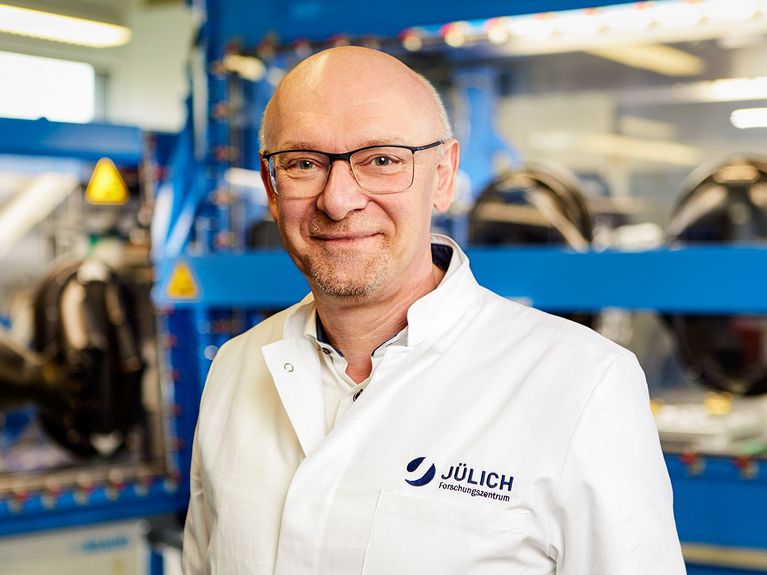Point of View
Reducing battery knowledge would be a step backwards for German industry

Martin Winter is the founding director and scientific leader of Helmholtz Institute Münster (HI MS; IEK-12) at Forschungszentrum Jülich and MEET Battery Research Center at the University of Münster. Photo: HI MS/Kraft
From 2024 on, funding for battery research will be cut to a fraction of the previous years. A decision with far-reaching consequences for Germany as a location for research, science and business, says Martin Winter, founding director of Helmholtz Institute Münster and MEET Battery Research Center at the University of Münster.
Batteries are the key technology for a successful energy and mobility transition. After many years of inactivity in funding in this field of research, around one billion euros have been invested in the development of German battery research by the BMBF alone over the last 15 years. As an instrument for climate protection, battery research in Germany has been massively funded by the federal and state governments in recent years. Now the Federal Ministry of Education and Research (BMBF) is cutting funding for new projects in 2024 to 20 million euros from the 180 million euros earmarked for the Climate Transformation Fund. Although projects that have already been started can be completed with funds that have already been approved, there will not be enough money for planned new projects. According to current planning, a total of 70 million euros has been allocated until 2028, but German battery research will need more than 750 million euros by then.
In Münster alone, around 500 employees work in battery research. The majority of whom are financed by BMBF project funding, which means that many of them cannot be retained in the future or cannot be replaced after leaving for industry. With the help of research funding, for example, master's and doctoral theses are created. As it stands, Germany will lose top scientific personnel and their expertise in battery research. We are already experiencing a severe shortage of skilled labor in industry, and the cuts will exacerbate the situation. And we are sending a fatal signal to young people who are considering studying in our field. They will see fewer opportunities and turn to other fields.
Project funding means a targeted investment in research AND education. Young talents in Germany are essential for companies as they play a major role in the transfer of technology from research to industry. Due to dwindling funds and dwindling reputations, this will no longer be sustainable in the future. Companies based in Germany will go where they can find skilled labor, and that will not be in Germany, which also offers overall less competitive framework conditions for this industry.
After many years of development, the time has now come for us to transfer our research results to industry. German industry is currently expanding production in the field of electromobility. The technology is reporting record-breaking market growth of 37 per cent per year. Particularly in Germany, a country with a strong automotive industry, we must avoid losing touch internationally or even be left behind completely, but must keep the location attractive for investment otherwise, we face the threat of a further intensification and acceleration of deindustrialization.
The last few years have shown what we can achieve thanks to a consistent and structured funding policy. The value chain of the energy and mobility transition begins with research and this requires clarity, reliability and prioritization as to which technologies are to be sustainably funded. The federal government could make the necessary funding available again in a new budget and for the coming years. Then the decision to cut funding for 2024 will just mean a still sensitive break, but not a definitive end to German battery research.
Readers comments